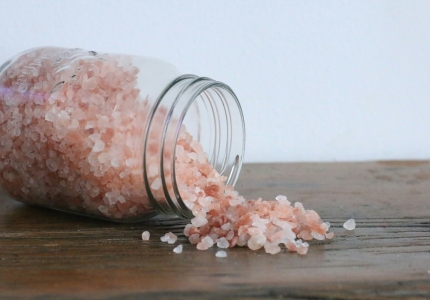If you are looking for natural ways to relieve stress, get better sleep, improve your mood and focus, or just feel more relaxed overall, aromatherapy may be a great solution for you. Aromatherapy has been used for spiritual, religious and medical purposes by ancient civilizations for thousands of years and it is still flourishing today. Considering that therapy is a word that we usually associate with recovery from painful and traumatic physical or mental experiences, aromatherapy is definitely one of the most pleasant, painless and drug-free forms of therapies readily available to us.
What is aromatherapy?
The term “aromatherapy” was first coined by Rene-Maurice Gattefosse in 1937, soon after discovering the healing qualities of the lavender plant for burns. Aromatherapy is a type of holistic therapeutic practice that uses aromatic flowers and plant-based extracts and compounds, called essential oils, to alleviate pain and enhance physical and spiritual well-being. It is considered to improve mood and health, and harmonizes the body, mind and spirit.
Essential oils are aromatic plant compounds, which are derived from various parts of the plant, such as leaves, barks, and herbs. They are called “essential” because their essence contains the plant’s fragrance. They are often extracted by processes such as cold pressing, solvent extraction and embedding, but the most common process is distillation through steam.
Uses and benefits
The uses and benefits of aromatherapy are as numerous as the amount of different oils and compounds derived and combined from multiple aromatic plants. Each plant has multiple medicinal qualities that tackle different ailments and create different effects. These oils release chemical messages that are sent to and processed by the limbic system, which regulates your moods and emotions.
In aromatherapy, essential oils can be used in various ways. Some oils are edible and can be mixed with your food. Some can be smelled or inhaled as vapors, and others can be mixed with creams and bath gels. They can be rubbed on your skin or added to your bathing routine to achieve soothing and energizing effects.
Some of the benefits aromatherapy can offer are:
- Stress relief: Stress caused by anxiety is possibly the most common and widespread ailment that afflicts us. Lavender, chamomile and bergamot are among some of the oils that help diminish anxiety, worrying and overthinking.
- Boost energy levels: Certain smells have been demonstrated to enhance our energy levels greatly, particularly citrus and minty oils such as orange, lime and peppermint.
- Increased memory capabilities: Some oils may be able to help us focus and retain information, such as rosemary, basil and clove.
- Antidepressant: As an alternative to pharmaceutical antidepressants, some homeopathic specialists recommend oil diffusers with lavender, peppermint and jasmine.
- Sleep aid: Chamomile, ylang ylang and sweet marjoram are great for soothing your mind and helping you relax into a peaceful sleep.
- Improve digestion: Oils like sage and fennel aid in bloating, constipation and accelerate metabolism to digest food faster, and inhaling ginger vapors may be helpful for alleviating nausea.
- Recovery: Cinnamon and lemongrass oils are very effective for alleviating joint and muscle pains, while eucalyptus and peppermint oils are ideal for battling congestions.
- Skin: Lemon, peppermint and eucalyptus oils have amazing qualities that are great for the skin, helping reduce wrinkles, improve circulation and brighten up your complexion.
Contraindications
As all things in life, too much of a good thing can be bad. Using essential oils incorrectly could cause skin irritation and allergic reactions. As a general recommendation, before indulging in using any of these oils it is wise to check in with your doctor or dermatologist first to make sure none of these ingredients interfere with any pre-existing medical condition or medications you may be taking.
Using these oils too frequently and inhaling too much can be very toxic. Not all natural ingredients are good for you, and some of the oils that you use for certain parts of your body may not be safe for your more delicate parts, such as eyes, nose, mouth or genitals. Some oils that are good for eating may not be good to use on your skin, and vice versa. If you are just starting to try these, it is advisable to apply a small amount in a small area first. Oils also have a shelf life, so it is very important to make sure that these oils are no older than 3 years.
If you’ve enjoyed this post, you should read 5 relaxation techniques.



